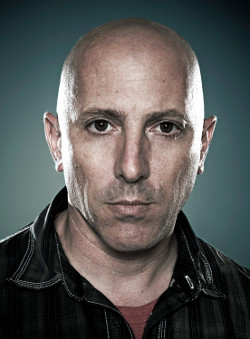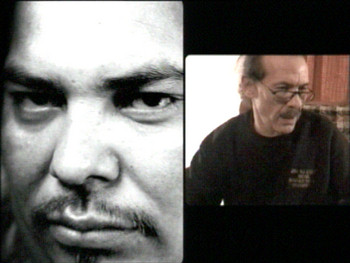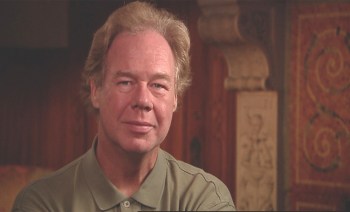Twitter Review: F for Fake
Dizzyingly fragmented, Welles’ ‘F for Fake’ builds layers of credible story exploring authenticity. ‘This is true, you know.’ No, you don’t.
Dizzyingly fragmented, Welles’ ‘F for Fake’ builds layers of credible story exploring authenticity. ‘This is true, you know.’ No, you don’t.
‘It Might Get Loud’ never does, and the guitar-star summit lacks chemistry. Still, it’s always engaging, and The Edge deserves his own movie
 Maynard James Keenan – the frontman for prog-metal gods Tool, the co-leader of A Perfect Circle, and the founder of Puscifer – isn’t the type of person you’d expect to see as the subject of a thorough documentary. He has a reputation for being reclusive, and for jealously guarding his privacy. As he says in the movie Blood Into Wine, “I’m not much of a people person.” Yet Keenan, along with his wine-making partner Eric Glomski, is at the center of that documentary, a freewheeling but thoughtful mix of wine primer, underdog story, buddy picture, and sketch comedy.
Maynard James Keenan – the frontman for prog-metal gods Tool, the co-leader of A Perfect Circle, and the founder of Puscifer – isn’t the type of person you’d expect to see as the subject of a thorough documentary. He has a reputation for being reclusive, and for jealously guarding his privacy. As he says in the movie Blood Into Wine, “I’m not much of a people person.” Yet Keenan, along with his wine-making partner Eric Glomski, is at the center of that documentary, a freewheeling but thoughtful mix of wine primer, underdog story, buddy picture, and sketch comedy.
‘Harvard Beats Yale’ ably manages character, context, and Gore/Bush digressions, but it fumbles the game: erratic pacing and odd inclusions.
‘Anvil!’ merely repeats Spinal Tap’s satire and has too much Lips and too little Robb, but the duo’s determination is touching and truly sad
‘Encounters at the End of the World’ – By turns tedious and fascinating, Herzog’s doc resembles the doomed penguin walking to the mountains.
 As a member of the choir, I ran screaming from the church because of Michael Moore’s preaching in Sicko. Plus: the equally inept Infamous.
As a member of the choir, I ran screaming from the church because of Michael Moore’s preaching in Sicko. Plus: the equally inept Infamous.
 The guy who dominates Stefan Nadelman’s documentary short Terminal Bar could be related to Robert Crumb, both in his physical features and his matter-of-fact way. He talks about everything from death by alcohol to bathroom blowjobs to the “destituted” people who frequented the titular establishment where he tended bar for a decade. And like the famous cartoonist Crumb, he seems perpetually amused, and it looks suspiciously like a defense mechanism.
The guy who dominates Stefan Nadelman’s documentary short Terminal Bar could be related to Robert Crumb, both in his physical features and his matter-of-fact way. He talks about everything from death by alcohol to bathroom blowjobs to the “destituted” people who frequented the titular establishment where he tended bar for a decade. And like the famous cartoonist Crumb, he seems perpetually amused, and it looks suspiciously like a defense mechanism.
 Near the anniversary of the September 11, 2001, terrorist attacks, spiritual-documentary filmmaker Martin Doblmeier conducted a survey on his Web site. He asked whether people supported constructing a “garden of forgiveness” at Ground Zero in New York City. Thousands of votes later, the results were overwhelming: Roughly 95 percent of respondents said “no.”
Near the anniversary of the September 11, 2001, terrorist attacks, spiritual-documentary filmmaker Martin Doblmeier conducted a survey on his Web site. He asked whether people supported constructing a “garden of forgiveness” at Ground Zero in New York City. Thousands of votes later, the results were overwhelming: Roughly 95 percent of respondents said “no.”
 The grief in Spike Lee’s When the Levees Broke is heartbreaking. Unfortunately, the anger in it is misinformed, facile, naïve, misplaced, unfair, inconsistent, unsupported, or some combination of the seven.
The grief in Spike Lee’s When the Levees Broke is heartbreaking. Unfortunately, the anger in it is misinformed, facile, naïve, misplaced, unfair, inconsistent, unsupported, or some combination of the seven.